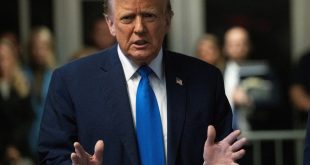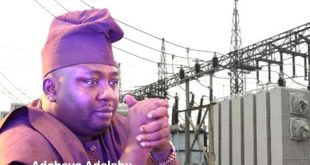Russia defends the transfers on humanitarian grounds, and Moscow signaled that the deportations would continue. Putin’s trip to Crimea notably featured a visit to a children’s center.
China’s role
Beijing is Moscow’s most important ally and has been a crucial economic partner throughout the war. The meeting today will give Putin an opportunity to argue that international support for Ukraine is limited to the West, a familiar refrain.
China is framing Xi’s three-day visit as an opportunity to push Putin into peace talks, hinting that a call with Volodymyr Zelensky, Ukraine’s president, could follow. But neither Ukraine nor Russia appears ready to negotiate, and the visit is broadly seen as the most overt sign yet of Xi’s support for Putin.
Western officials have warned that China is considering whether to provide Russia with weapons, which Beijing denies. And Xi is increasingly determined to challenge the idea of a U.S.-led global order by drawing other countries into closer orbit with China.
Mariupol’s significance
For Ukraine, it is a symbol of the country’s agony and resistance. The city was razed by Russian forces. The U.N. said that at least 1,300 died in the battle there, but that the true toll was probably thousands more. Ukraine’s last defenders endured an 80-day siege at a steel plant.
For Russia, Mariupol is at the center of the Kremlin’s spin. It is in the Donbas region, and Putin used the false argument that Ukraine was carrying out a “genocide” there to help justify the invasion. The visit was the closest Putin has come to the front lines since the invasion.
Trump says his arrest is imminent
Former President Donald Trump claimed he would be arrested tomorrow and urged his supporters to rally to his side. But while the Manhattan district attorney has signaled that he is preparing to seek felony charges and a grand jury is expected to indict Donald Trump, the timing is unclear.
Trump would be the first former president to be indicted on a criminal charge. On Saturday morning, Trump on his social media site, Truth Social, called for people to “PROTEST, TAKE OUR NATION BACK!”
A spokesman for Trump quickly hedged, and said the former president did not have direct knowledge of the timing. My colleagues report that prosecutors have not told Trump’s lawyers when the charges would be sought.
The charges would likely stem from a hush-money payment of $130,000 to Stormy Daniels, a porn star, on the eve of the 2016 election. It would not be a simple case: Prosecutors are expected to use a legal theory that has not been assessed in New York courts.
2024 race: Trump is leading his Republican opponents in most polls.
UBS is buying Credit Suisse
In a hastily arranged deal meant to shore up the global banking sector, UBS agreed to buy Credit Suisse. Switzerland organized the deal, which is the most consequential fallout yet from the recent financial turmoil.
UBSis expected to buy its beleaguered rival for a fraction of the $9.5 billion it was valued at on Friday. To help support UBS, the Swiss National Bank agreed to lend up to $108.8 billion.
Swiss government leaders and regulators said that the deal was the most effective way of reassuring investors after Credit Suisse’s shares tumbled in the aftermath of the implosion of Silicon Valley Bank this month.
Context: Credit Suisse was affected by the panic, but its troubles are largely of its own making. Recent scandals and financial missteps have cost it billions of dollars and damaged its reputation.
THE LATEST NEWS
China
-
Opponents of Justin Trudeau, Canada’s prime minister, say leaked intelligence reports show he ignored warnings about Chinese interference in past elections.
Asia Pacific
Camp Naru is a haven for Korean Americans. It’s designed to help young people in the diaspora — adopted and otherwise — reconnect to their heritage and with one another.
ARTS AND IDEAS
The invasion of Iraq, 20 years later
On March 20, 2003, the U.S. invaded Iraq as part of its “war on terror” after the Al Qaeda attacks on Sept. 11, 2001. It started with an aerial assault to topple Saddam Hussein and became an occupation, then a war against an insurgency and then a sectarian civil war.
Iraq is now more free, but not more hopeful. Sectarian fighting continues. The oil-rich nation is hobbled by corruption. There are few private-sector jobs, and many government jobs require bribes to obtain. Almost everyone lost someone during the war.
Iran, its longtime enemy, benefited. It has built loyal militias inside Iraq, gained deep political influence and reaped economic gains. The rise of Iran exposed the unintended consequences of the U.S. strategy, analysts and former officials say.
Justification: Historians and officials are still debating the rationale behind the U.S. invasion.
For more: See photos from the war.
 Top Naija News: Nigerian News, Breaking News Nigeria and World News Top Naija News is a daily news publication in Nigeria, delivering the latest breaking news in Nigeria and around the world.
Top Naija News: Nigerian News, Breaking News Nigeria and World News Top Naija News is a daily news publication in Nigeria, delivering the latest breaking news in Nigeria and around the world.



